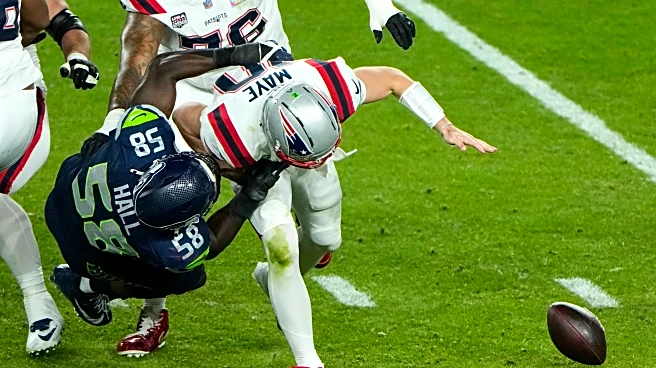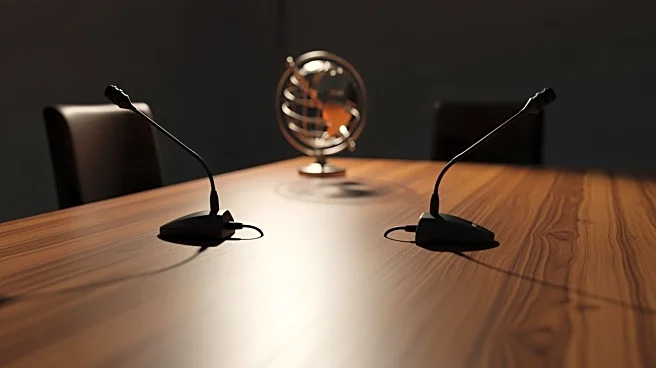What's Happening?
Joachim Rønning, the director of Disney's upcoming film 'Tron: Ares,' has enlisted Nine Inch Nails to score the movie. The band, consisting of Trent Reznor and Atticus Ross, is known for their award-winning compositions for films like 'The Social Network' and 'Soul.' Rønning aimed to create a grittier version of Tron, contrasting the artificial and real worlds, and felt Nine Inch Nails' industrial sound was ideal for this vision. The decision to have Reznor and Ross score the film as Nine Inch Nails was suggested by Tom MacDougall, president of Walt Disney Music. The soundtrack, featuring 24 tracks, will include instrumentals and scenes with Trent Reznor's vocals. The film stars Jared Leto as Ares, an AI program sent to the real world on a mission.
Why It's Important?
The involvement of Nine Inch Nails in scoring 'Tron: Ares' marks a significant shift in the musical direction of the Tron franchise, known for its pioneering electronica. This collaboration could attract a broader audience, including fans of industrial music and those interested in a more mature take on Disney films. The choice reflects a growing trend in the film industry to blend traditional storytelling with modern, edgy soundscapes, potentially influencing future projects. The soundtrack's release could also impact the music industry, showcasing the band's versatility and expanding their reach beyond typical film scores.
What's Next?
The 'Tron: Ares' soundtrack is set to be released on September 19, with the film premiering on October 10. As anticipation builds, fans and critics will likely analyze how Nine Inch Nails' music complements the film's narrative and visual elements. The success of this collaboration could lead to more partnerships between mainstream film studios and unconventional music artists, further diversifying the soundtracks of major cinematic releases.
Beyond the Headlines
The decision to avoid using AI in the soundtrack creation highlights ongoing debates about the role of artificial intelligence in creative industries. Rønning's emphasis on human artistry over AI could spark discussions about the value of human creativity in an increasingly digital world. This stance may resonate with audiences who appreciate traditional artistic processes and could influence how future films approach the integration of technology in their production.









